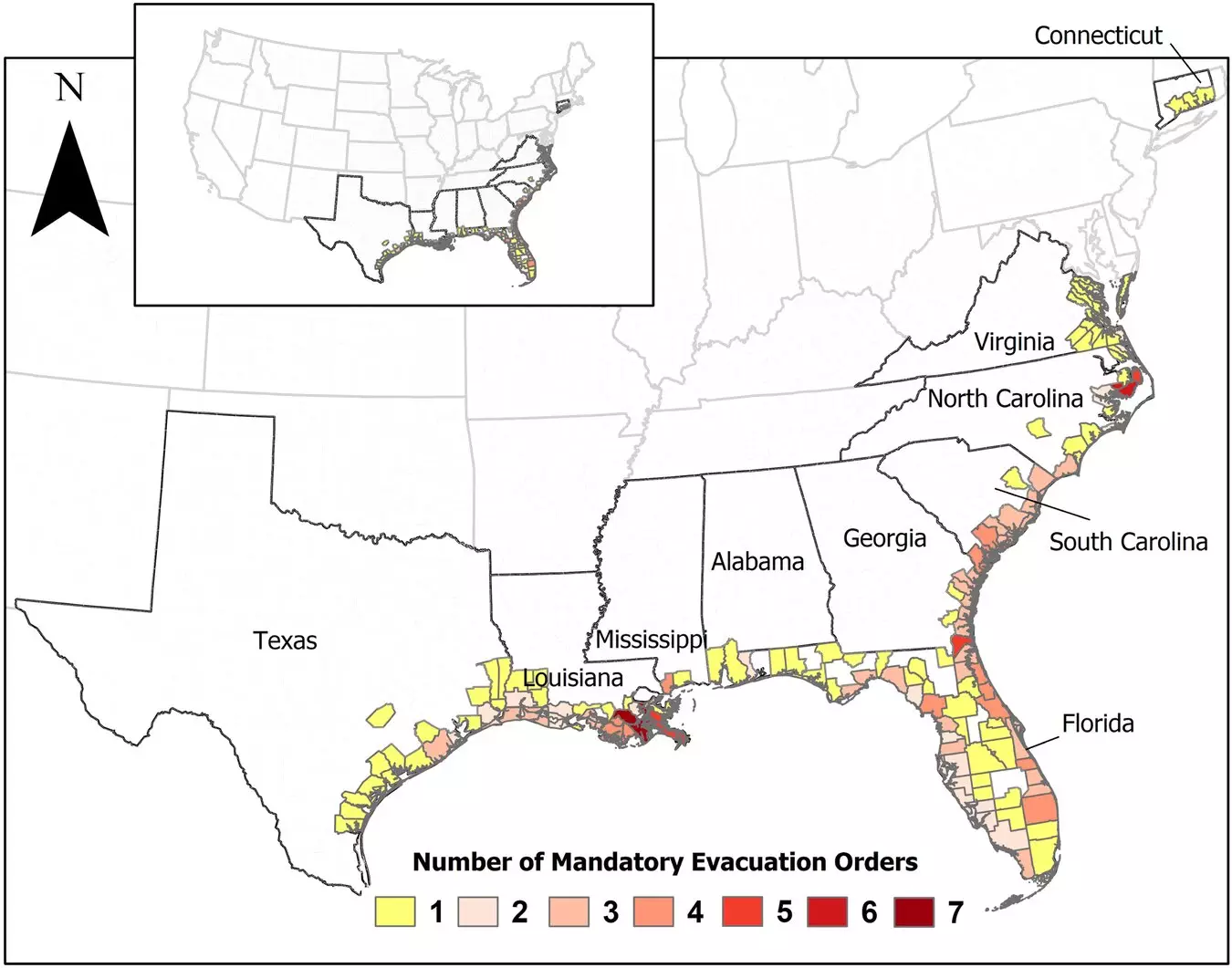As the frequency and intensity of hurricanes continue to increase due to climate change, it is crucial for leaders and government officials to have access to valuable data that can help improve community resilience and reduce loss of life during these natural disasters. A team of researchers from the University of Virginia has developed the first-ever database of hurricane evacuation orders in the United States, known as the Hurricane Evacuation Order Database (HEvOD). This database provides a comprehensive collection of evacuation orders issued by state and local agencies in response to hurricanes between 2014 and 2022, totaling 25 hurricane events.
The team, comprised of Majid Shafiee-Jood, Negin Alemazkoor, and Harsh Anand, dedicated countless hours to gather nationwide public-facing evacuation orders from various sources such as official websites, social media accounts, and news platforms. Each entry in the database includes crucial information such as the type of order (mandatory or voluntary), announcement date and time, effective date and time, target evacuation areas, and State of Emergency declarations by governors. This detailed compilation was motivated by the recognition of the lack of a historical database of hurricane evacuation orders, despite their critical role in public safety.
The process of creating HEvOD was far from straightforward, as the team encountered numerous complexities along the way. Evacuation laws and policies vary significantly across states, leading to differences in legal authorities for mass evacuations and communication of evacuation details. The use of various platforms for disseminating evacuation orders further complicated the data collection and verification process. Despite these challenges, the team persevered to make the database publicly accessible through LibraData and their website, enabling local and state officials to analyze past evacuation orders and enhance future emergency response strategies.
The HEvOD database serves as a valuable tool for emergency management officials to assess the effectiveness of past evacuation orders, optimize response plans, and enhance communication strategies. By studying historical evacuation patterns, officials can make more informed policy decisions, leading to targeted and timely evacuation orders, improved resource allocation, and ultimately, reduced loss of life during hurricanes. The database also allows for integration with other disciplines of research, enabling social scientists, urban planners, and environmental scientists to analyze evacuation responses in diverse communities.
The team behind HEvOD has already begun using the database to answer important research questions on hurricane evacuation decision-making. Studies are being conducted to quantify the effectiveness of mandatory evacuation orders during specific hurricane events and compare the relationship between evacuation orders and patterns. The goal is to update and expand the database annually after each hurricane season, welcoming contributions and collaboration to ensure its relevancy and effectiveness. Users can also assist by adding missing data or correcting errors, further enhancing the database’s quality and utility.
The creation of the Hurricane Evacuation Orders Database (HEvOD) by researchers at the University of Virginia represents a significant step towards improving community resilience and reducing loss of life during hurricanes. This comprehensive database of historical evacuation orders provides valuable insights for leaders and government officials to enhance emergency response strategies and policy decisions. By leveraging HEvOD, researchers and practitioners can work towards creating a more resilient and prepared society in the face of increasing natural disasters.


Leave a Reply